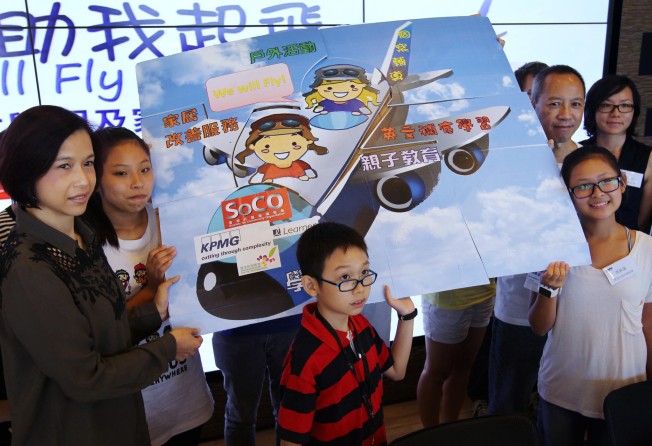Needy children in Hong Kong benefit from English programme
After eight months, a survey finds participants have much better skills and are more confident

An English afterschool programme for underprivileged children has produced good results after only eight months.
A survey, released yesterday by poverty relief group the Society for Community Organisation (Soco), found 87 per cent of the children they surveyed who were in the programme recorded a 10 per cent improvement in their English skills.
The children took an exam in June and their scores had improved an average of 10 points in a 100-point marking system when compared with an exam taken in December last year.
The three-year HK$3.6 million programme, which began in November, is co-funded by international auditor KPMG and the Social Welfare Department under the government's Partnership Fund for the Disadvantaged scheme. Each year it aims to help at least 150 children from poor families to improve their English with after-school tutoring, online teaching and by improving the home environment of those who live in subdivided flats.
The survey, which was conducted last month and involved 60 pupils in the programme and 48 parents, defines poverty as a household earning less than HK$6,062 per month - half of the median income of all households in the city.
Some 212 children from families living under the poverty line are in the programme. More than 40 per cent live in subdivided flats and about a third are new immigrants from the mainland.
Lau Yip-sum, 11, came to Hong Kong in 2004 with his mother and younger brother. They live with his father in a subdivided flat in Sham Shui Po, surviving on his father's wage of about HK$10,000 a month. They pay about HK$4,000 a month for rent and utilities.
Lau said he used to dislike English and did not understand what his teacher was talking about, but the programme got him to learn the basics again and he gradually became more interested in learning. His scores had improved from the lowest 23 to the latest 73. "Now I really want to learn English more," he said.
Soco director Ho Hei-wah said poor parents tended to be less educated and could not help their children study. They also did not have enough money to pay for extra classes. "In the past, poor children could change their fate through studying hard," said Ho. "But it's no longer possible with such a wide wealth gap."